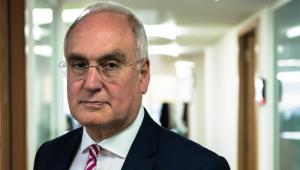In a speech to the CentreForum think-tank yesterday, Wilshaw warned that “a patchwork of accountability” had been created following reforms that had introduced free schools and academies.
“I have long argued for a middle tier to oversee school performance and intervene where necessary,” he highlighted.
“So the government’s decision to introduce Regional Schools Commissioners to oversee academies is one I support.
“Unfortunately, their roles and how they fit with other accountability bodies isn’t always clear.”
For example, the chief inspector of schools noted that Ofsted is charged with inspecting all schools and colleges. In addition, the Education Funding Agency not only funds schools but also intervenes when decline occurs, while individual multi-academy trusts have their own oversight arrangements, as do councils.
“It is a patchwork of accountability rather than the seamless cover we need,” Wilshaw said.
“Problems, inevitably, are shuffled between various agencies. This isn’t fair on parents and it certainly isn’t fair on schools. A symptom of that confusion has been a more than doubling of complaints to Ofsted about schools in the last three years. The danger is that only those able to navigate this accountability maze will have their concerns addressed.”
Speaking at an event where CentreForum called for a national goal to be set for 75% of pupils to achieve 50 or more points at the so-called “attainment 8 stage” at the end of secondary school across eight subjects in 2030. It is expected that attainment across these subjects would be around 35% in 2014, and on current trends will only be 60% by 2030.
Wilshaw said this aim “should be perfectly feasible”.
However, he also reiterated his cost for governance improvements across schools, adding “if that means paying for expertise, then we should consider paying them”.
“Now, I am not going to argue for the return of all schools to local authority control, far from it. The rot set in in large parts of our education system because local authorities allowed too many schools to decay over many years. But it would greatly simplify matters if all schools were held to account in the same way. I have no doubt that commissioners will grow into their roles and my regional directors will continue to work alongside them.”
Wilshaw also said it was a matter for government whether the recent drive to devolve powers locally should include education, but that local politicians should take more responsibility for education.
“Improvement across such a complex system needs strong leadership that is aware of local weaknesses and isn’t afraid to confront vested interests,” he stated.
In such a complex system, parents need clarity about who will stand up for them and their children. In such a complex system, someone with local knowledge needs to ensure that there are good schools for all, not just for those lucky enough to live in the right postcodes.”
Improvements in London showed what was possible and they were “beginning to radiate across the capital and into surrounding areas as schools and politicians set higher and higher expectations”.
He added: “London has become a nursery for success. I know of outstanding headteachers who have chosen to leave the capital and work further afield.
“If it can happen in London, it can happen elsewhere. But it won’t happen by accident or committee. Local politicians in Manchester, Newcastle, Liverpool and Leeds now need to provide the leadership and drive regardless of the powers bequeathed by Whitehall.”



















